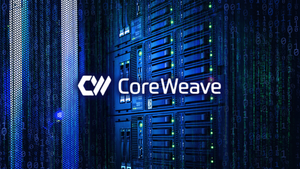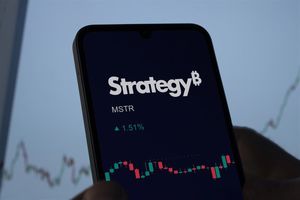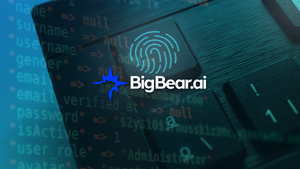
When your skin reacts to seemingly everything, finding reliable answers becomes frustrating. Traditional skincare advice often feels generic, leaving you wondering why products designed for “sensitive skin” still irritate. The solution lies in understanding the actual science behind skin sensitivity rather than guessing.
Modern technology now offers personalized, evidence-based approaches that transform how we learn about and manage sensitive skin conditions through structured, interactive educational platforms.
Understanding Sensitive Skin Through Modern Online Science Tutoring
The complexity of sensitive skin demands a scientifically-grounded approach that traditional learning methods often fail to deliver effectively. Discover how cutting-edge online tutoring platforms are revolutionizing skincare education through personalized, interactive experiences.
Modern educational platforms now bridge the gap between complex dermatological research and practical understanding. Students can access expert-led sessions that break down intricate biological processes into digestible concepts. With the advent of online science tutoring, learners now have direct access to specialized knowledge that was previously limited to medical professionals.
Digital platforms transform abstract concepts into visual, interactive experiences. Students can manipulate 3D skin models, observe cellular processes in real-time, and experiment with virtual scenarios. This hands-on approach helps learners grasp complex topics like pH balance and barrier function more effectively than traditional textbook methods.
Benefits of Interactive Skincare Classes for Personalized Learning
Interactive skincare classes adapt to individual learning styles and skin concerns. Participants receive customized content based on their specific sensitivity triggers, skin type, and learning preferences. This personalization ensures that each student focuses on information most relevant to their situation.
AI-Powered Skin Analysis Integration in Online Learning Platforms
Artificial intelligence now analyzes skin images, identifies potential sensitivity patterns, and recommends targeted learning modules. These tools provide immediate feedback and create personalized educational pathways that evolve with the learner’s progress and changing skin needs.
While innovative online platforms provide the perfect learning environment, understanding the fundamental science behind sensitive skin remains crucial for effective treatment. Let’s dive deep into the biological mechanisms that govern skin sensitivity and reactivity.
Core Principles of Sensitive Skin Care Science
Skincare science encompasses multiple interconnected systems that determine how skin responds to environmental factors and products. Understanding these foundations empowers learners to make informed decisions about their skincare routines and product choices.
Skin Barrier Function and Reactive Mechanisms
The skin barrier consists of specialized cells and lipids that protect against external irritants. When this barrier becomes compromised, sensitivity increases dramatically. Students learn to identify barrier dysfunction symptoms and understand how different ingredients either support or disrupt this protective system.
Genetic Factors vs Environmental Triggers in Skin Sensitivity
Research shows that sensitive skin care requires consideration of both inherited tendencies and external influences. Some people inherit genetic variations that make their skin more reactive, while others develop sensitivity through repeated exposure to harsh products or environmental stressors.
Microbiome Research and Its Impact on Sensitive Skin Management
The skin’s microbial ecosystem plays a crucial role in sensitivity. Beneficial bacteria help maintain barrier integrity, while imbalanced microbiomes can trigger inflammatory responses. Students explore how lifestyle factors influence microbial health and learn strategies for supporting skin microbiome balance.
Armed with scientific knowledge of skin sensitivity mechanisms, the next challenge lies in translating complex research into practical understanding. Modern interactive learning modules transform abstract concepts into engaging, hands-on experiences that accelerate comprehension.
Interactive Online Learning Modules for Skincare Science
These modules combine multimedia presentations, virtual experiments, and real-time assessments to create immersive learning experiences. Students can practice diagnosing skin conditions, formulating custom routines, and predicting product interactions in risk-free environments.
Virtual Skin Assessment Tools and Real-Time Analysis
Advanced imaging technology allows students to analyze skin samples virtually. They can zoom into cellular structures, track changes over time, and compare normal versus sensitized skin tissue. This visual approach makes microscopic processes tangible and memorable.
Gamified Learning Experiences for Complex Skin Chemistry
Game-based learning transforms challenging chemistry concepts into engaging activities. Students might solve ingredient interaction puzzles, build molecular structures, or compete in sensitivity prediction challenges. These activities make complex topics more approachable and enjoyable.
Personalized Curriculum Based on Individual Skin Profiles
Each learner receives a customized educational pathway based on their skin assessment results. The curriculum adapts dynamically, emphasizing topics most relevant to their specific concerns while providing comprehensive foundational knowledge.
Live Laboratory Simulations for Understanding Ingredient Interactions
Virtual labs allow students to experiment with ingredient combinations safely. They can observe how different pH levels affect skin penetration, test preservative systems, or simulate allergic reactions without any real-world consequences.
Beyond theoretical learning, successful skincare science education requires mastery of diagnostic skills that traditionally demanded in-person training. Revolutionary online diagnostic tools now enable remote assessment techniques with remarkable accuracy and depth.
Advanced Diagnostic Techniques in Online Tutoring for Skincare
Digital diagnostic tools replicate professional assessment methods through high-resolution imaging, automated analysis, and expert interpretation. Students learn to use these technologies while developing critical evaluation skills.
Digital Dermatoscopy and Remote Skin Evaluation
High-definition cameras and specialized lighting systems enable detailed skin examination from a distance. Students practice identifying subtle changes, documenting progression, and interpreting findings using professional-grade equipment accessible through online platforms.
pH Testing and Skin Barrier Assessment Through Interactive Demos
Virtual pH testing demonstrates how skin acidity affects barrier function and product effectiveness. Students learn to interpret results, understand optimal pH ranges, and predict how different products might affect their skin’s acid mantle.
Patch Testing Simulation and Allergen Identification Training
Simulated patch testing allows students to experience the allergen identification process without actual exposure risks. They learn proper testing protocols, result interpretation, and safety procedures through realistic virtual scenarios.
Accurate diagnosis forms the foundation, but implementing evidence-based treatment strategies separates amateur enthusiasts from true skincare professionals. Explore how interactive case studies and clinical research analysis build expertise in protocol development.
Evidence-Based Treatment Protocols for Sensitive Skin
Understanding sensitive skin requires more than surface-level knowledge. Students examine peer-reviewed research, analyze clinical trial data, and learn to distinguish between marketing claims and scientific evidence.
Clinical Study Analysis Through Interactive Case Studies
Real patient cases demonstrate how research translates into practical treatment approaches. Students evaluate study methodologies, assess statistical significance, and develop critical thinking skills for evaluating skincare claims.
Ingredient Efficacy Research and Real-World Application
Students explore ingredient databases, review clinical testing results, and learn to identify truly effective compounds. This research-based approach helps them distinguish between proven ingredients and marketing hype.
Customized Routine Development Using Scientific Methodology
Systematic routine development combines individual assessment data with evidence-based ingredient selection. Students learn structured approaches for creating effective, personalized skincare protocols that address specific sensitivity triggers.
Evidence-based protocols provide the roadmap, yet emerging technologies are reshaping how we visualize, predict, and understand skin behavior in unprecedented ways. These advanced tools transform learning from passive absorption to active discovery and innovation.
Technology-Enhanced Learning Tools for Skincare Science
Cutting-edge technologies create immersive learning experiences that were impossible just a few years ago. Students can explore molecular structures in three dimensions, predict reactions using artificial intelligence, and collaborate with peers worldwide.
Augmented Reality Skin Modeling for Better Understanding
AR technology overlays digital information onto real-world images, allowing students to see beneath the skin’s surface. They can visualize blood flow, observe cellular processes, and understand how different layers interact during inflammatory responses.
Machine Learning Algorithms for Predicting Skin Reactions
AI systems analyze vast datasets to predict how specific ingredients might affect individual skin types. Students learn to interpret algorithmic recommendations while understanding the limitations and biases inherent in automated systems.
Community-Based Learning Platforms with Expert Mentorship
Global communities connect students with dermatologists, researchers, and fellow learners. These networks facilitate knowledge sharing, peer support, and professional mentorship opportunities that extend beyond formal coursework.
Mobile Apps Integration for Continuous Learning and Tracking
Smartphone integration allows continuous learning and progress monitoring. Students can photograph their skin, track product reactions, and access micro-learning modules throughout their daily routines.
While technology enhances learning experiences, career advancement in skincare science demands formal recognition and specialized expertise development. Professional certification programs and advanced coursework bridge the gap between knowledge acquisition and industry credibility.
Professional Development in Sensitive Skin Care
Career advancement requires structured learning paths that combine theoretical knowledge with practical skills. For those pursuing advancement in the field, online science tutoring for skincare professionals now provides flexible access to advanced training and certification opportunities.
Certification Programs Through Online Science Tutoring
Accredited programs offer structured learning paths leading to professional credentials. These courses combine self-paced study with live instruction, practical assessments, and continuing education requirements.
Advanced Formulation Science for Sensitive Skin Products
Specialized training covers ingredient chemistry, stability testing, and regulatory compliance. Students learn to develop products specifically designed for sensitive skin while understanding manufacturing constraints and safety requirements.
Research Methodology Training for Skincare Innovation
Scientific research skills enable professionals to contribute to the field’s advancement. Students learn study design, statistical analysis, and publication processes while developing critical evaluation abilities.
Professional credentials establish foundation-level competency, but true expertise emerges through collaborative learning and real-world application. Community-driven learning networks accelerate skill development through peer interaction and mentorship opportunities.
Building Your Expertise Through Interactive Skincare Classes
Collaborative learning accelerates skill development through shared experiences and diverse perspectives. Students benefit from peer insights, expert guidance, and real-world application opportunities.
Peer-to-Peer Learning Networks in Skincare Science
Online communities facilitate knowledge exchange among students with varying backgrounds and experiences. These networks provide support, accountability, and diverse perspectives that enrich the learning experience.
Mentorship Opportunities with Dermatology Professionals
Direct access to practicing professionals provides invaluable career guidance and practical insights. Mentors share real-world experiences, industry trends, and professional development advice.
Building expertise through collaboration creates immense learning value, yet quantifying progress and validating competency requires systematic assessment approaches. Digital tracking tools and competency frameworks ensure your educational investment delivers measurable professional advancement.
Measuring Success in Online Skincare Science Education
Systematic assessment ensures learning objectives are met while motivating continued improvement. Digital platforms offer comprehensive tracking and validation systems.
Progress Tracking Through Digital Assessment Tools
Automated systems monitor learning progress, identify knowledge gaps, and recommend additional study areas. These tools provide objective feedback while allowing students to track their development over time.
Skin Improvement Documentation and Analysis
Before-and-after documentation demonstrates practical application of learned principles. Students develop skills in photography, analysis, and interpretation while building portfolios of their successes.
Understanding measurement frameworks completes the educational journey, but practical implementation questions naturally arise when considering online skincare science education. Address the most common concerns and considerations before beginning your interactive learning experience.
Your Path Forward in Skincare Science
Interactive online learning democratizes access to professional-level skincare education, making complex dermatological concepts accessible to everyone. These platforms combine cutting-edge technology with proven educational methods to deliver personalized learning experiences.
Whether you’re managing your sensitive skin or building professional expertise, interactive skincare classes provide the foundation for evidence-based decision making. The future of skincare education lies in these innovative digital platforms that transform how we understand and care for our skin.
Your Questions About Online Skincare Education Answered
Is online learning as effective as face-to-face instruction?
Research shows 80% of organizations believe their digital learning use will remain the same or increase. Online platforms often provide more personalized attention and flexible pacing than traditional classroom settings.
How can I verify the credibility of online skincare science courses?
Look for courses created by licensed dermatologists or certified skincare professionals. Check for accreditation, peer reviews, and evidence-based curricula that reference published research and clinical studies.
What equipment do I need for interactive skincare classes at home?
Most programs require only a computer with reliable internet, a webcam for assessments, and basic lighting. Some advanced courses may recommend specific photography equipment or pH testing strips.





